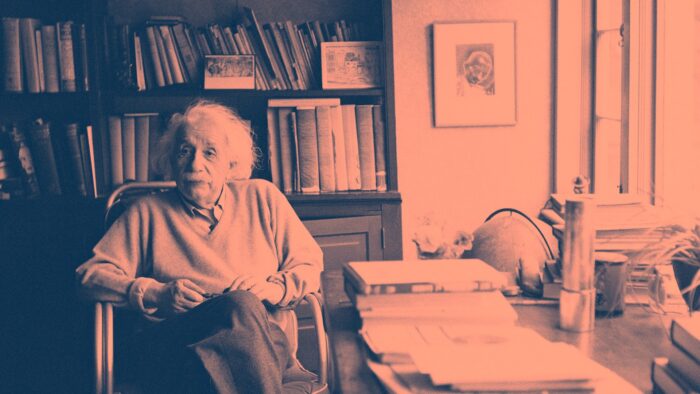According to Einstein, what you decide not to do can make all the difference.
BY JEFF HADEN, CONTRIBUTING EDITOR, INC.@JEFF_HADEN
For Inc.
Photo: Albert Einstein in his study at Princeton, New Jersey, in 1951. Photo: Getty Images
After Albert Einstein graduated from college in 1900, he struggled to find work as a teacher and took a job at the patent office. (Even Einstein had to start somewhere.) He used that job, in time-honored, dues-paying tradition, to cover the bills while he published four groundbreaking scientific papers and earned his PhD in 1906.
So he took a step back and assessed his career. Generally speaking, he was, um, a generalist. What if he focused on one thing? What if he applied non-Euclidian math to his own work on general relativity so it accounted for the effect of gravity? For the next three years, that’s what he did. That’s all he did. (He later claimed his hair turned white from the stress.)
In 1915, he published his theory of relativity, arguably the greatest scientific accomplishment of the 20th century.
Einstein’s Law of Focus
As Cal Newport, author So Good They Can’t Ignore You (a book I’ve given to at least 50 people over the years), writes:
“Einstein’s push for general relativity highlights an important reality about accomplishment. We are most productive when we focus on a very small number of projects on which we can devote a large amount of attention. Achievements worth achieving require hard work. There is no shortcut. … Effort, sustained over a long amount of time, is required.
In a perfect world, we would all be Einsteins. We would each have only one, or at most two, projects in the three major spheres of our lives: professional, extracurricular, and personal.”
Granted, that’s not easy. We all tend to be generalists, even if not by choice. (Starting your own business means wearing many hats.)



